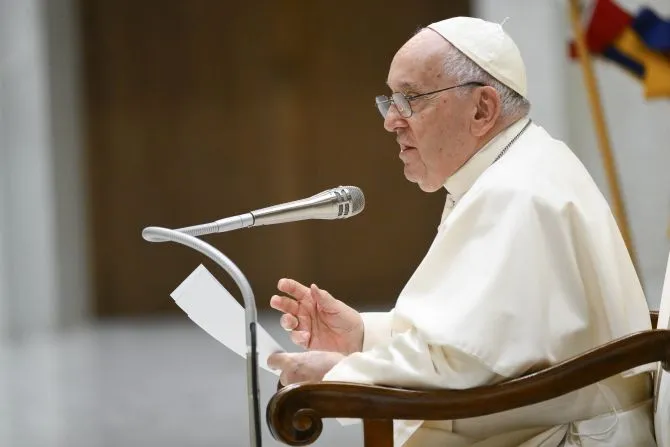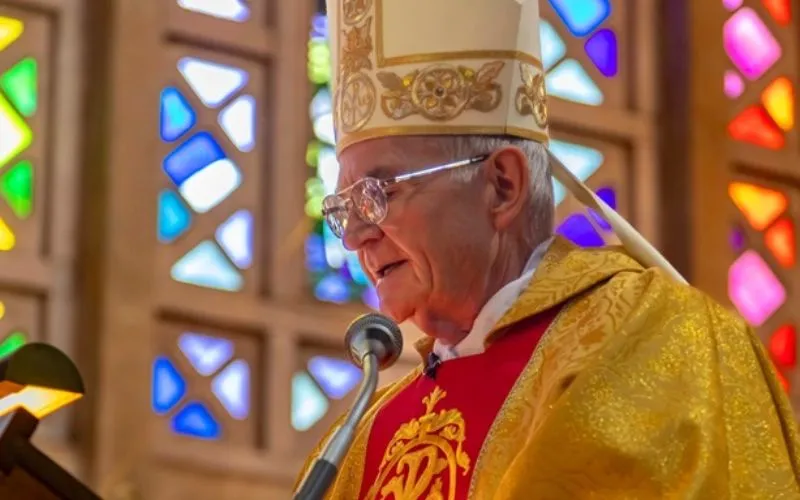“We have opened our doors, we have offered everyone the opportunity to participate, we have taken into account everyone's needs and suggestions. We want to contribute together to build the Church where everyone feels at home, where no one is excluded,” Pope Francis said.
“That word of the Gospel that is so important: everyone. Everyone, everyone: there are no first-, second- or third-class Catholics, no. All together. Everyone. It is the Lord's invitation.”
The pope underlined that the Church needs to “get used to listening to each other, to talking, not cutting our heads off for a word” and “to listen and discuss in a mature way.”
“This is a grace we all need in order to move forward. And it is something the Church today offers the world, a world so often so incapable of making decisions, even when our very survival is at stake,” he said.
“We are trying to learn a new way of living relationships, listening to one another to hear and follow the voice of the Spirit.”
To explain the significance of the Synod on Synodality, Pope Francis described the synod as “a journey that St. Paul VI began at the end of the [Vatican II] Council when he created the Secretariat of the Synod of Bishops because he had realized that in the Western Church synodality had disappeared, whereas in the Eastern Church they have this dimension.”
“And this years-long journey — 60 years — is bearing great fruit,” he added.
Pope Francis spoke about the upcoming synod while accepting an award from Italian journalists at the Vatican’s Apostolic Palace, noting that he usually declines awards and honors.
 Pope Francis accepts the “È Giornalismo” prize from Italian journalists at the Apostolic Palace on Aug. 26, 2023. Vatican Media
Pope Francis accepts the “È Giornalismo” prize from Italian journalists at the Apostolic Palace on Aug. 26, 2023. Vatican Media
“You must know that, even before becoming bishop of Rome, I used to decline the offer of awards. I never received any, I did not want to. And I have continued to do so even as pope. There is, however, one reason that prompted me to accept yours, and that is the urgency of constructive communication, which fosters the culture of encounter and not of confrontation; the culture of peace and not of war; the culture of openness to the other and not of prejudice,” he said.





 Pope Francis accepts the “È Giornalismo” prize from Italian journalists at the Apostolic Palace on Aug. 26, 2023. Vatican Media
Pope Francis accepts the “È Giornalismo” prize from Italian journalists at the Apostolic Palace on Aug. 26, 2023. Vatican Media Pope Francis meets with the International Catholic Legislators Network at the Vatican on Aug. 26, 2023. Vatican Media
Pope Francis meets with the International Catholic Legislators Network at the Vatican on Aug. 26, 2023. Vatican Media


